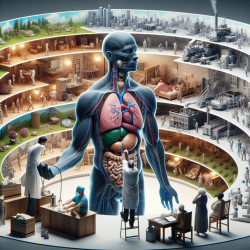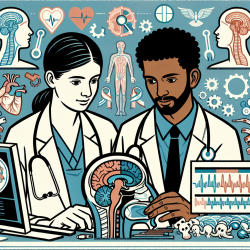At TinyEYE, we are committed to leveraging the latest research to improve our online therapy services for schools. One such research article that provides valuable insights for practitioners is titled Role of politically motivated internet addiction and ideological passion in linking college student's mental health education and wellbeing by Shuyu Meng et al. This study highlights the critical role of mental health education and its interaction with politically motivated internet addiction and ideological passion in influencing college students' wellbeing.
Key Findings and Implications for Practitioners
The study utilized a robust methodology, employing a random sampling method to collect data from 750 respondents and analyzing it using partial least square (PLS) software. The findings revealed significant relationships that can guide practitioners in enhancing their interventions:
- Mental Health Education and Wellbeing: The study confirmed a positive relationship between mental health education and college students' wellbeing (ß = 0.602, t = 8.270, p = 0.000). This underscores the importance of incorporating comprehensive mental health education in therapy programs.
- Ideological Passion as a Moderator: Ideological passion was found to significantly moderate the relationship between mental health education and wellbeing (ß = 0.250, t = 6.578, p = 0.000). Practitioners should consider the ideological passions of students when designing mental health interventions to enhance their effectiveness.
- Politically Motivated Internet Addiction: This factor also played a significant moderating role (ß = 0.221, t = 5.815, p = 0.000). While internet addiction is often viewed negatively, the study suggests that politically motivated internet use can positively influence mental health education outcomes if managed properly.
Practical Recommendations for Practitioners
Based on these findings, here are some practical recommendations for practitioners:
- Integrate Mental Health Education: Ensure that mental health education is a core component of therapy programs. This can be achieved through digital platforms, workshops, and interactive sessions.
- Consider Ideological Passion: Tailor interventions to align with the ideological passions of students. This can increase engagement and the overall effectiveness of mental health programs.
- Manage Internet Use: Encourage positive and purposeful use of the internet among students. Provide guidance on how to balance internet use for political engagement with academic and personal wellbeing.
Encouraging Further Research
The study also highlights the need for further research to explore additional factors influencing college students' mental health and wellbeing. Practitioners are encouraged to contribute to this growing body of knowledge by conducting studies on:
- The impact of different types of mental health education interventions.
- The role of parents, teachers, and other influencers in shaping students' mental health.
- The effectiveness of various digital tools and platforms in delivering mental health education.
By staying informed and engaged with the latest research, practitioners can continuously improve their skills and the outcomes for the children they serve.
To read the original research paper, please follow this link: Role of politically motivated internet addiction and ideological passion in linking college student's mental health education and wellbeing.










